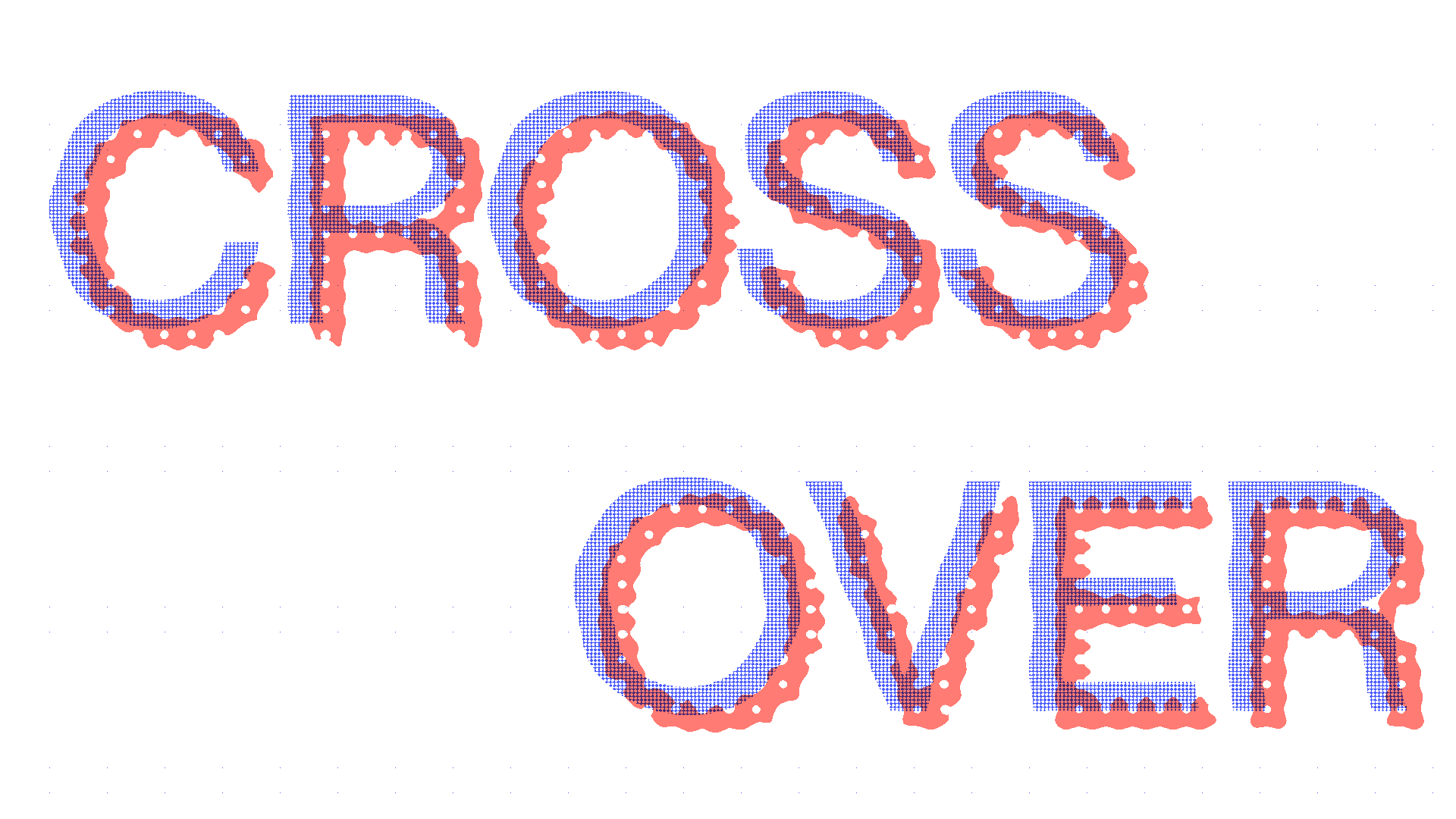MItochondria and us

Professor Kostas Tokatlidis (Cathcart Chair of Biochemistry and Director of Research School of Molecular Biosciences at the University of Glasgow) was one of the participants of the first Crossover workshop. During the workshop, he showcased mitochondrial research (and applications to mitochondrial medicine) as a key area where such cross-over approaches can be pioneered to create new and impactful ways of engagement and innovative narratives to reach wider audiences.
Towards this goal the University of Glasgow mitochondrial integrative research network aims to develop new cross-cutting research and novel tools, collaborate nationally and internationally to drive disruptive progress in fundamental mitochondrial mechanisms, diagnostics, precision mitochondrial delivery and therapeutic approaches together with the pharma industry, policy changes and in outreach and education. Amongst the many ideas discussed, three fundamental questions emerged for further exploration in the context of mitochondrial research and societal engagement:
- What do we know and still need to learn about mitochondria and how we as researchers in the field communicate scientific advances?
- What effects do mitochondrial dysfunction and disease have on people’s lives?
- Who should we bring together to understand this and what it means for society?
Follow-on discussions led Professor Kostas Tokatlidis to organize an international online event for Mitochondrial Disease Awareness Week (13–19 September 2020) together with Reader in Transdisciplinary Design Innovation Elio Caccavale and Creative Economy Leadership Fellow Dr Michael Pierre Johnson and with the support of the Royal Society of Edinburgh (RSE) who embraced this as part of the RSE’s societal engagement and outreach activities.
The aim of the event was to co-curate a cross-over of interdisciplinary expertise, practice and personal experiences exploring the impact of mitochondrial research and related disorders on society. Mitochondria and Us: Interdisciplinary Stories from Science and Society on the Powerhouse CEO of the Cell highlighted stories from across scientific disciplines that shed light on how mitochondria are made, how they sustain cell life under stress and how they control cell death.
The event was based on contributions from world experts of a variety of scientific disciplines that are integral to mitochondrial research (biology, chemistry, physics, data science and medicine). Importantly, it also brought together patient groups, the ‘women in mitochondria’ research group, social scientists, bioethicists and designers to share stories of what the understanding of mitochondria means for people and society.
This online webinar was also part of the RSE Regional Champions event and was run in partnership with the UofG, the GSA and the Lily Foundation (the largest UK Mito patient charity organization). It had a very wide reach with an attendance of over 350 people from all continents across the world.
Consecutively in 2021, the Biochemical Society, with the support of Dr Pedro Ferreira (Education, Public Engagement and Training Manager), sponsored a new-phase Crossover Project, co-funded by the RSE Young Academy of Scotland (YAS). The Crossover Project aimed to build further a network of interdisciplinary exchange between science, society and design to develop transdisciplinary practices that creatively address complex challenges and opportunities that arise with the advancement of scientific knowledge and technology. To do this, the Crossover Project hosted a new series of three workshop programmes, with more focused contexts related to understanding and caring for invisible diseases and community STEM education.
The first of these workshops, Mitochondria and Us: Co-creating Science and Society Narratives of Mitochondrial Disease, built on partnership with Professor Kostas Tokatlidis, took place online over Zoom and Miro on 25 February 2021. The workshop brought together 14 participants from a unique variety of expertise across biochemistry, design, social sciences and humanities to co-create stories that could support greater understanding of people’s experiences living with and working with mitochondrial diseases. Participants shared their perspectives through discussions and reflections across societal, experiential and biochemical levels to co-create opportunities for collaboration across multiple disciplines that could challenge the current disease-siloed approach and build stronger connections across research, clinicians and patients.
The idea of forming a Global Mito Collective emerged to provide a mito-centric approach to bridge new collaborations that can help build a new understanding on the role mitochondria play in our lives. An essential aspect identified for such a collective was to empower scientific collaboration across mitochondrial research disciplines, by generating an interdisciplinary ‘collective’ of international scientists, social scientists, bioethicists, patient groups, clinical groups and design researchers that seek to contribute to the understanding and caring for mitochondrial diseases and dysfunctions using innovative approaches.
We co-developed and co-presented a proposal for the Global Mito Collective, first as an online panel discussion with mitochondrial disease foundations at the World Mitochondrial Disease Awareness Week 2021 programmed in partnership with the Biochemical Society and organized by Professor Kostas Tokatlidis, Elio Caccavale, Dr Michael Pierre Johnson and facilitated by Gaston Welisch (Research Associate, IS GSA). This was followed by a second discussion at the Mito2021 Conference organized and co-hosted by MITO2i, MitoCanada and the Brain and Mind Institute at the University of Ottawa. Both events enabled discussion and input on what such a Global Mito Collective should do, as well as what the benefits could be, building towards a series of aims that could shape forms of collaboration and value creation moving forward.
- MITO RESEARCH – for a shared understanding of cell health
- MITO VOICES – to share experiences of those affected by or working with mitochondria
- MITO COURSES – to develop skills in research and clinical impact
- MITO MEDICINE – as part of everyday treatment and advice
- MITO MATTERS – for collective dialogue on the urgent matters for development
Globally, there are many excellent research centres with their own focus on some aspects of mitochondrial research and with their own expertise, often built over many years of frontier research achievements. Some examples in the UK are the MRC Mitochondrial Biology Unit and the Wellcome Trust Mitochondrial Research Centre as well as centres in Oxford and London. Relevant networks include the North American Disease consortium, the Mitochondrial Medicine Society and several patient advocate groups and charities like the Lily foundation and MyMito Mission in the UK, the United Mitochondrial Disease Foundation (UMDF) in the USA and several other foundations across the world (some with broader remits like Alzheimer’s and Parkinson’s disease foundations). Funding organizations supporting high-risk, high-reward projects to a better society and improve the field of medicine (Michael J Fox Foundation, Bill & Melinda Gates Foundation and others) have funded and can play a critical role in supporting highly innovative mitochondrial research, which also has the potential to attract eventually investment from pharma to develop new therapeutics that target mitochondrial function.
While all of the above is critical to obtain an in-depth understanding of specific human diseases and mitochondrial dysfunctions, there is increasing awareness that expanded collaborations are critical to develop a more holistic, mitochondria-focused, but disease-agnostic approach to mitochondria research. This is an ambitious vision, but aligns well with the idea of the Mito Collective along the lines we are currently exploring.

